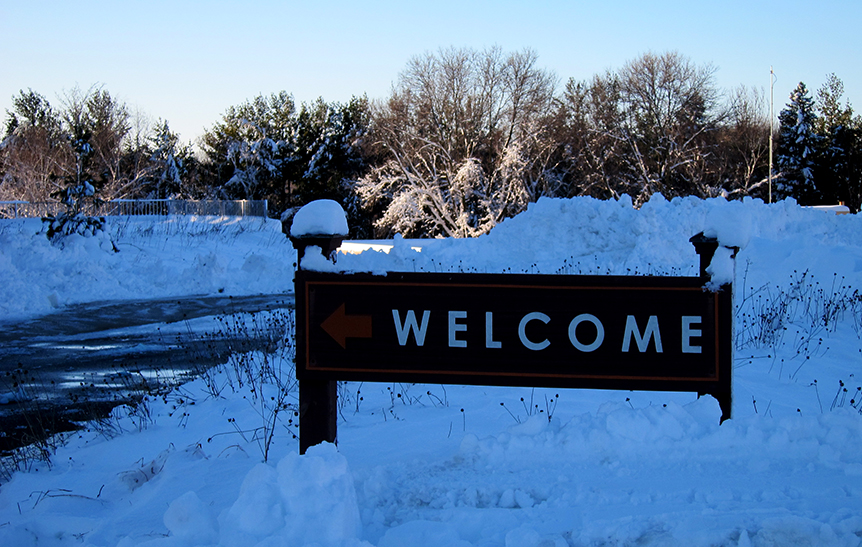
A couple weeks ago when we had snow on a Sunday morning, I got up early to plow the driveways at home. The snow blower on the tractor wasn’t working properly so it took longer than usual. I saw the problem, but couldn’t fix it myself especially in single digit temperatures in the dark of pre-dawn. I made a mental note to contact Paul, our groundskeeper, to see if he could fix the trouble on Monday so it would be ready for the next snow.
Later that morning at the monastery, before Sunday Assembly, someone told me of a friend who wouldn’t be there unless the plows happened to come by early to clear her street. Apparently, she lives on a street that is not a priority for plowing. As people slowly gathered for the Eucharist, I began to think of all the people who had served us by plowing or maintaining our vehicles in order for us to be able to come together to worship. I gave thanks for all the city and county workers and all the private plowers who were out early working in the cold and dark serving us.
My morning experiences made me aware that we live as part of a vast network of service. We aren’t always aware of this network because much of the time we think we are living self-sufficiently. In the middle and upper class, at least, we can pretty much take care of our needs. If we need food, we go to the store or to the garden. If we need gas for the car, we go to the filling station. If we are ill, we go to the doctor and take care of ourselves. We take for granted all the people who work behind the scenes to provide the food for the store, to staff and maintain the filling station and all those people involved in the health care system. We are no more self-sufficient than the poor whose dependence on the service of others can’t be hidden.
Benedict writes: “Monastics should serve one another.” (Rule of Benedict 35:1) Table service is a simple example of this. Benedict lays out many aspects of service in the monastery beginning with the prioress who serves each member according to her temperament. Then he provides assistance for the prioress through the sub-prioress and the deans. The porter is the first to serve the guests who come. The cellarer or business manager provides for the community’s physical needs. Those who lead prayer, the readers and cantors, the infirmarians and those who work with new comers serve the community. No one escapes this vast web of service. Even the servers are to be served and given assistance when they need it.
All of this service is sacred and to be done with reverence. When the kitchen servers begin their service for the week they recite the same verse with which prayer begins in the oratory: “O God, come to my assistance; O God make haste to help me.” Service is seen as a form of prayer, a way of seeking God in a Benedictine community. I give thanks for the ways I can serve and for those who serve me.



Comments 2
Thank you Lynn. I witnessed a version of the sacred service during our Luke House meal last Tuesday. The two gentlemen to my left were cheerfully constantly attentive to each other’s needs for coffee, butter, salad dressing, condiments and so on. It took but one request from me and the parade of provisions marched in my direction. They seemed so grateful to help. One of the day’s significant joys.
Thanks for sharing this story, Bob. It is sacred service indeed and a joy!